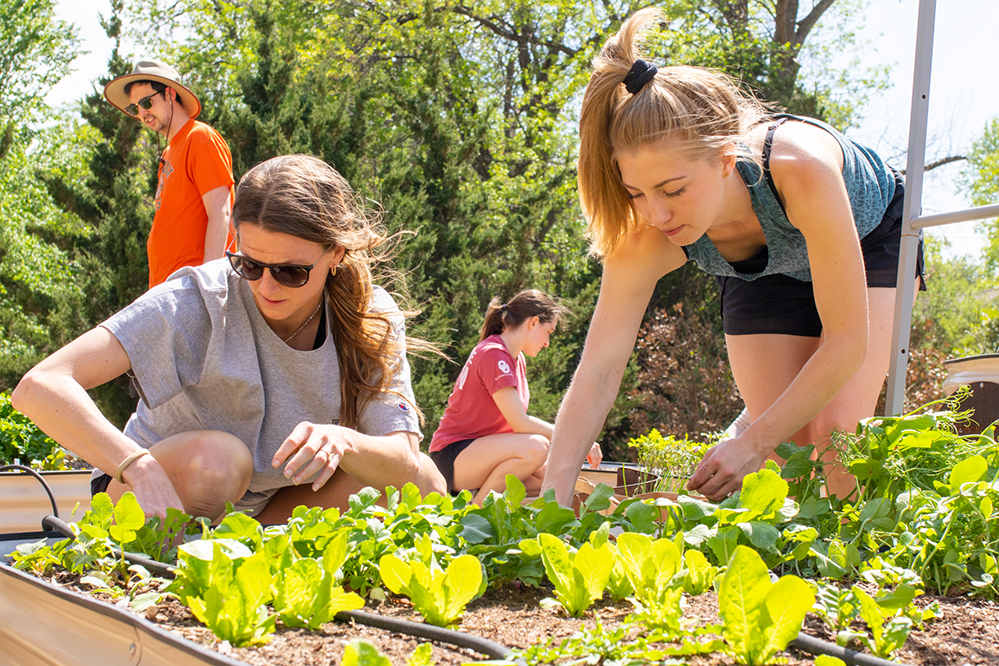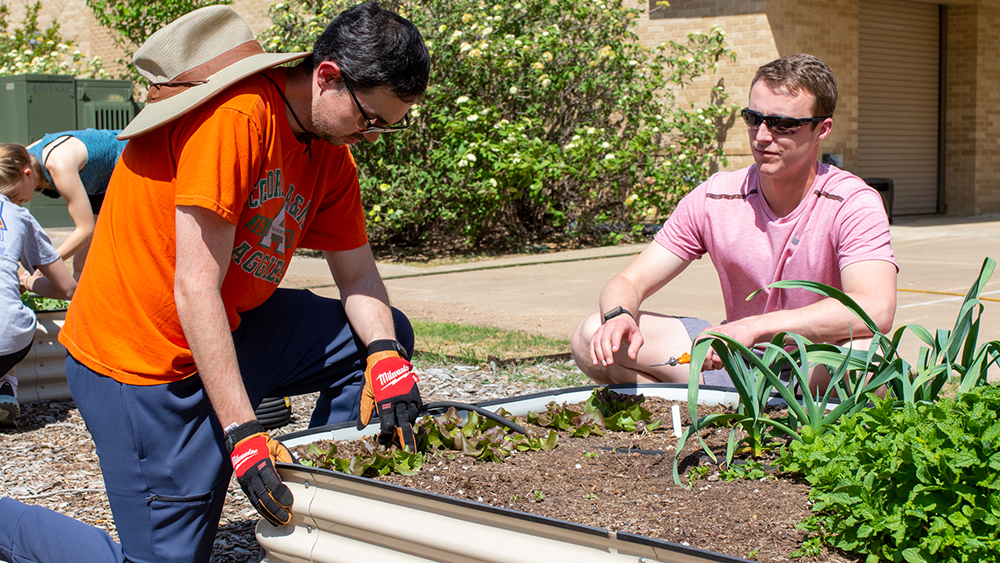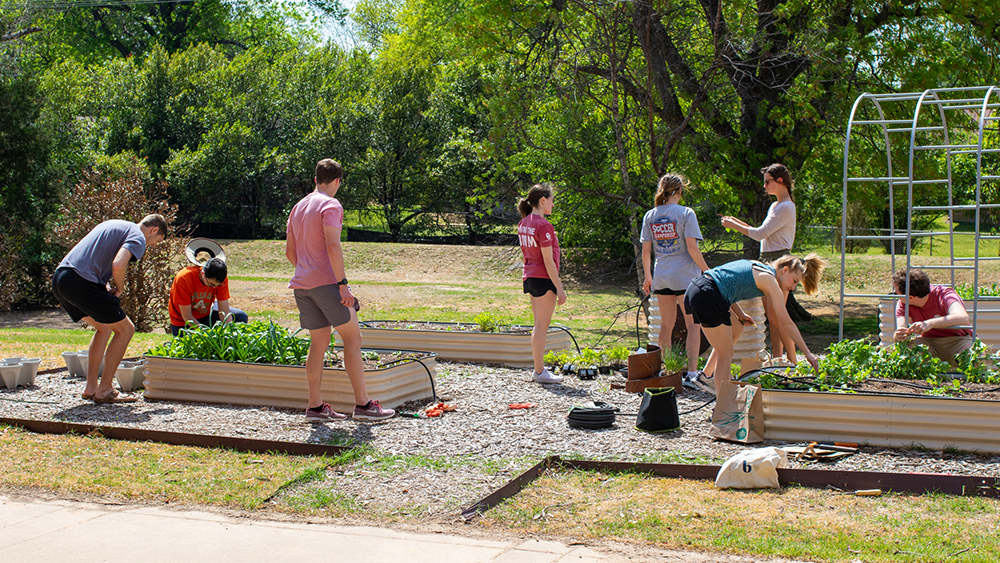A garden can provide many things to many people. It can be a place of rest and rejuvenation, a place to reconnect with beauty in nature, and even a way to feed loved ones the healthy, good-for-the-body ingredients that just taste better straight from the ground. Another way a garden can benefit that may not come readily to mind is as an opportunity to learn. But that’s just what the culinary medicine program on the OU-Tulsa campus has achieved with their Growing Health Garden – a place of peace, produce and practical learning.
“I find tending to the garden to be therapeutic for many reasons,” shared Courtney Harmon, project coordinator in culinary medicine and staff sponsor for the garden. “You have to pay attention to the ever-occurring changes taking place to find success in growing fruits and vegetables. Soil, sun and water all interact with each plant differently, and there is always something new to learn about these interactions. When you’ve spent some time in the garden, you learn how hard it is to grow something to eat. You learn the true value of food through growing it on your own.”



